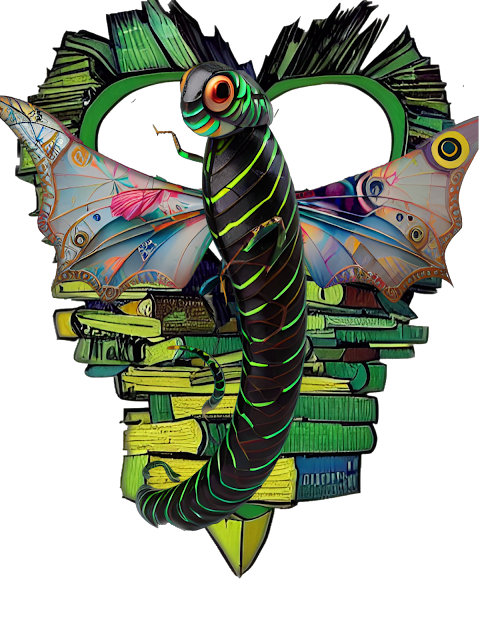As I failed to mention yesterday in my monthly memo of my cultural engagement, I am still reading Naomi Novik's Scholomance trilogy to my dear wife. We are on the third book of the series, The Golden Enclaves. And though I have written so many times in this space about my profound admiration for this Fantasy series, in reading it yet again I continue to find wonderful things I want to extol here on clerkmanifesto.
At this point, I will interject a major spoiler alert. Though I do expect all my readers will have read these books by now, I provide this spoiler alert as a just-in-case, so that any new clerkmanifesto reader, or iconoclastic holdouts, can set down my blog for the moment and race off to go read these books before venturing on to my very spoilery observations.
Everybody ready then?
Today I would like to address the Scholomance Trilogy's narrative fireworks.
But I find it hard to articulate what these are and why they are so impressive. Perhaps comparison will help me light the way.
Think about a riddle. Here's one:
Mary's father has five daughters. Their names are:
Nana
Nini
Nono
and
Nene.
What was the fifth daughter's name?
This is pretty simple, though it is easy to get wrong. I don't like getting riddles wrong so when I come across one I try to skip to the answer really quick before considering it long enough to become confused.
The answer here is: Mary.
Aha.
But when a book embeds something like this into its very narrative, one doesn't even know it's there. And so one doesn't know what to skip to for the answer. So one simply reads the book. Then when one comes to the "aha" moment, and something obvious, simple (in its way), and clarifying is revealed, well, it's spectacular.
This is really hard to do in narratives! The Sixth Sense did this and is famous for it. The third Harry Potter book, by Anita Bryant, wait, no, by J. K. Rowling, has a nice instance of it. Murder on the Orient Express maybe does it but I'm not sure because I always get too confused when I read it.
Naomi Novik pulls off the trick of this at least two times in The Golden Enclaves, probably three. These are narrative riddles that secretly bubbled along, hidden, for two full books! There is Orion's mother being a maleficer. There is the answer to the question: how are enclaves made (or, where do malmouths come from)? And there is the riddle of El's grandmother's prophecy. These are so fantastic because with a single moment they reorient everything one has read. They instantly organize and clarify and reveal, while they also change nothing from the past. I think it is a kind of distillation of the very nature of plot. Things happen and in time they are resolved, but they are resolved in us, by making sense.
Here is another riddle I came across:
Imagine yourself in a completely dark room. There are no windows and no doors. The floors, ceiling, and walls are solid. How do you get out?
Open your eyes.

I don't get it. If the room is completely dark, why would it become light if I opened my eyes What the heck am I missing here? I DID get the one about the five daughters.
ReplyDeleteGood job on the "Mary" riddle.
DeleteI have lost all confidence and now think the second riddle must be a dud,and surely it skirts the rules, but, my implication is: if you leave your imagination of the thing you are no longer there. Call it extreme lateral thinking.